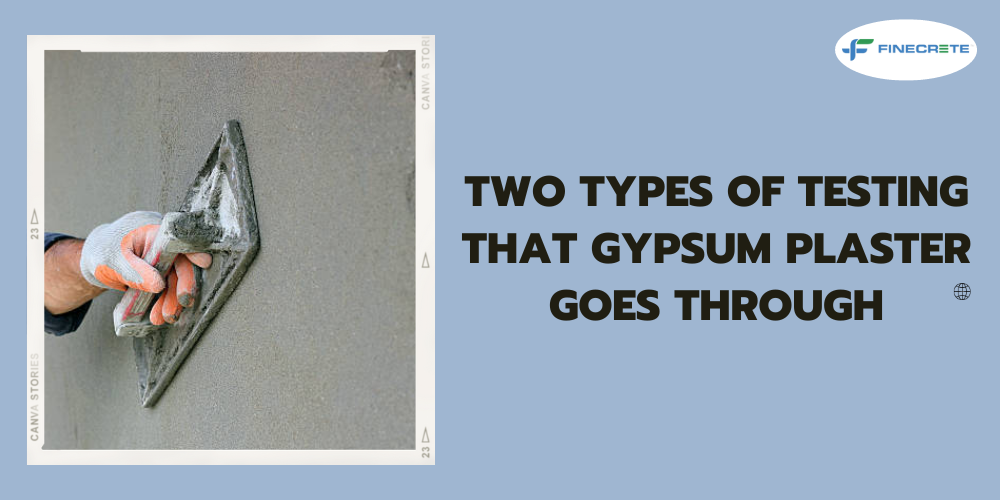Gypsum plaster, a widely used material in construction, undergoes meticulous testing to ensure its adherence to strict quality standards. These tests are categorized into two parts, each focusing on specific aspects of the plaster’s physical and chemical properties.
- Part I Testing:
It is a comprehensive evaluation of gypsum plasters. This section encompasses various tests applicable to all gypsum plasters, whether they contain “lightweight aggregates” or not. The tests conducted under Part I include:
- Normal Consistency (%):
This test determines the water-to-plaster ratio required to achieve a standard consistency, ensuring optimal workability.
- Setting Time (Minutes):
It evaluates the time taken for the plaster to set helps in assessing its usability in different construction scenarios.
- Compressive Strength (N/mm2):
It measures the ability of the plaster to withstand compressive forces is crucial for understanding its structural integrity.
- Transverse Strength (N/mm2):
This test assesses the plaster’s resistance to bending forces, providing insights into its durability.
- Soundness:
It is about ensuring that the plaster remains stable over time. The soundness test examines its resistance to expansion and contraction.
- Expansion (%):
The expansion test evaluates the plaster’s dimensional stability under varying conditions.
- Freedom from Coarse Particles:
It involves detecting coarse particles, which ensures a smooth and homogeneous plaster application.
- Bulk Density:
Measuring the mass per unit volume helps ascertain the plaster’s density, impacting its overall performance.
- Part II Testing:
It involves a specific analysis for gypsum plaster with lightweight aggregates. The test focuses on gypsum plaster containing premixed “lightweight aggregates,” meeting the specifications outlined in IS: 2547 (Part 1). The tests under this section include:
- Sum of Soluble Sodium and Magnesium Salts:
This test determines the content of soluble sodium and magnesium salts, crucial for understanding the plaster’s chemical composition.
- Free Lime Content:
It involves assessing the percentage of free lime content, which provides insights into the plaster’s chemical stability and potential reactivity.
The rigorous testing of gypsum plaster ensures that it meets industry standards and performs optimally in various construction applications. These tests, ranging from assessing physical properties to scrutinizing chemical composition, collectively contribute to the reliability and quality of gypsum plaster in the construction sector.






